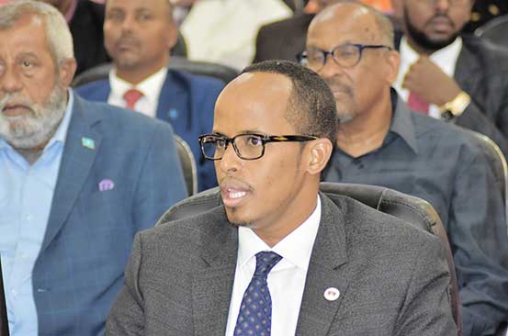
Thabit Abdi Mohamed, 39, the youngest Mayor of Somalia's capital Mogadishu had barely been in office for seven months when a major test for his leadership abilities emerged suddenly in form of the worst terrorist attack in Somalia's history plunging the city of 3 million into crisis.
Saturday afternoon of October 14 turned into hell on earth in Mogadishu when two powerful truck bombs ripped through a busy city intersection popularly known as Zoobe leaving hundreds of people dead, injured and missing, while many buildings, businesses and vehicles were reduced to rubble.